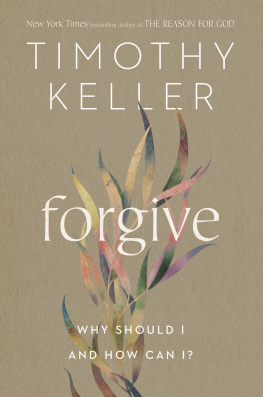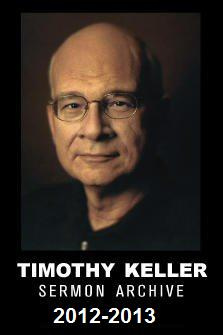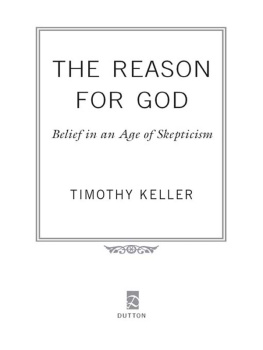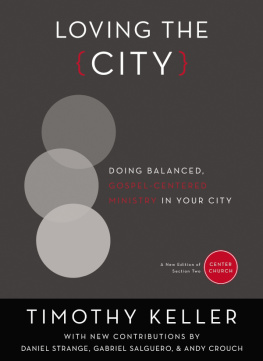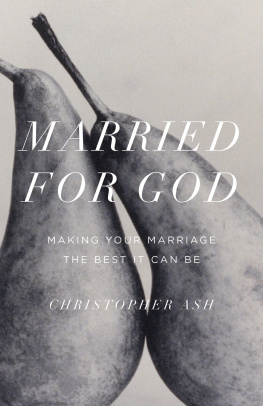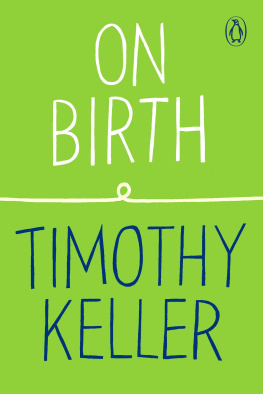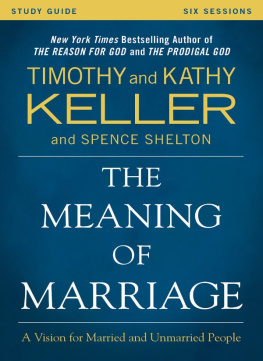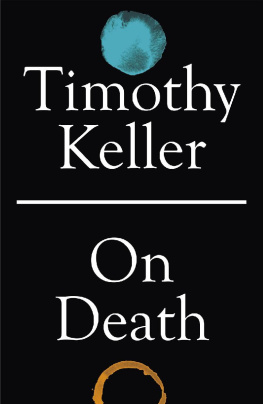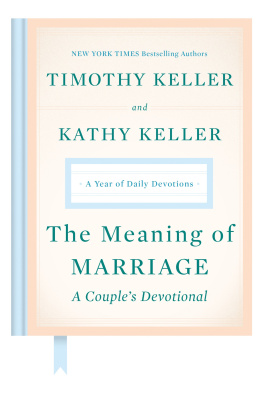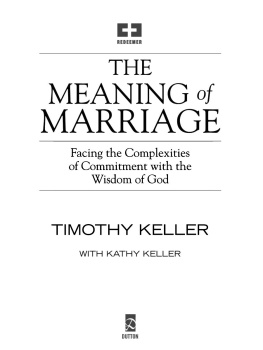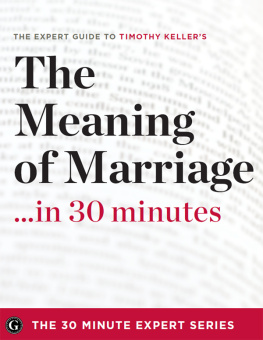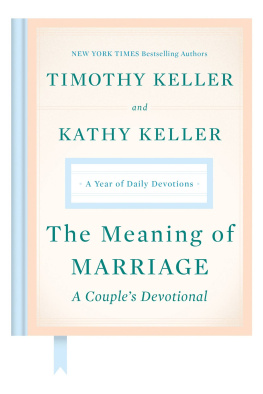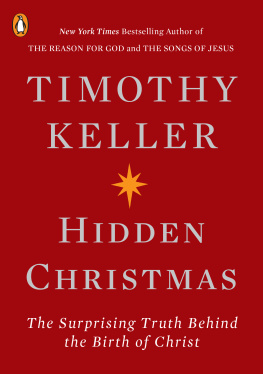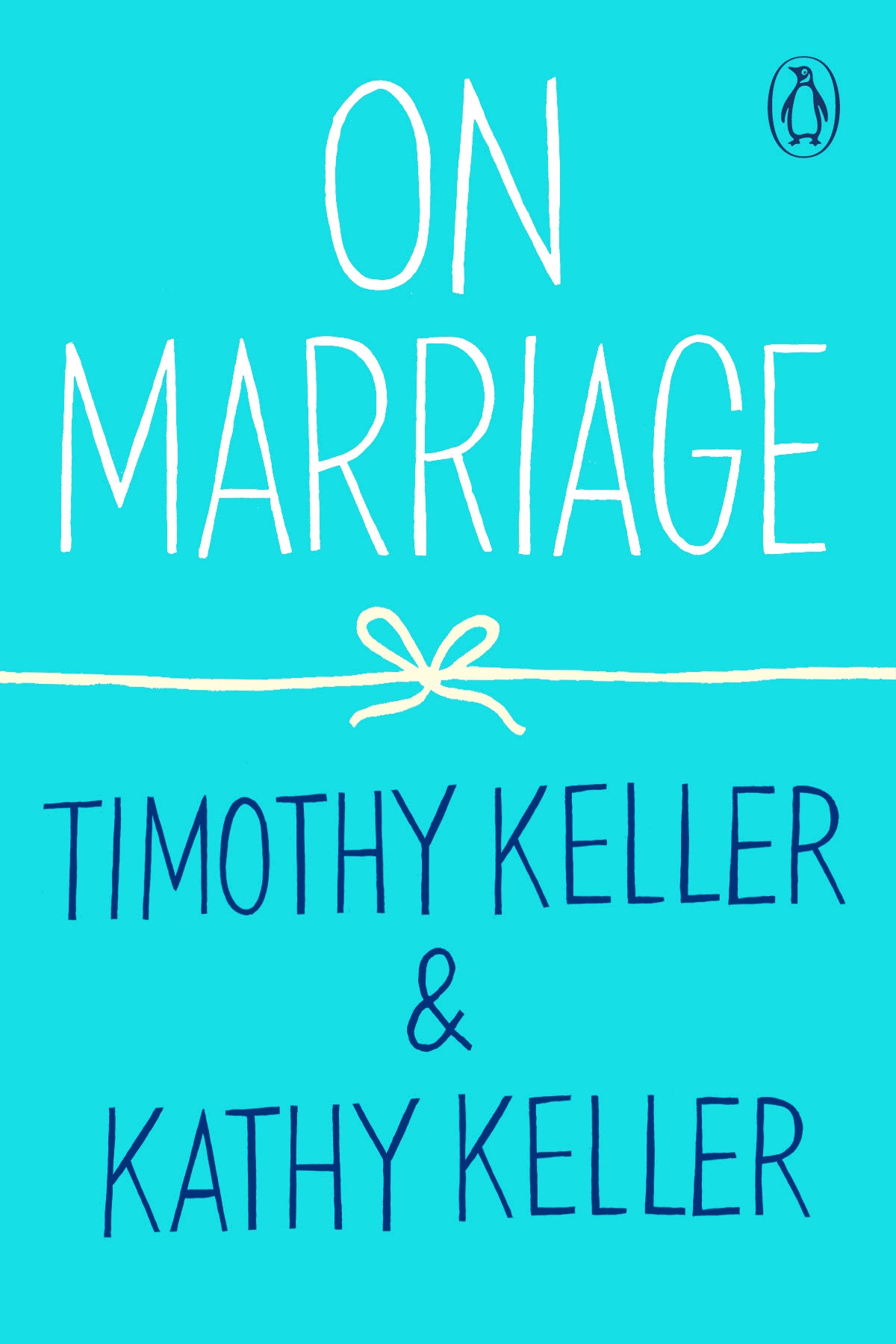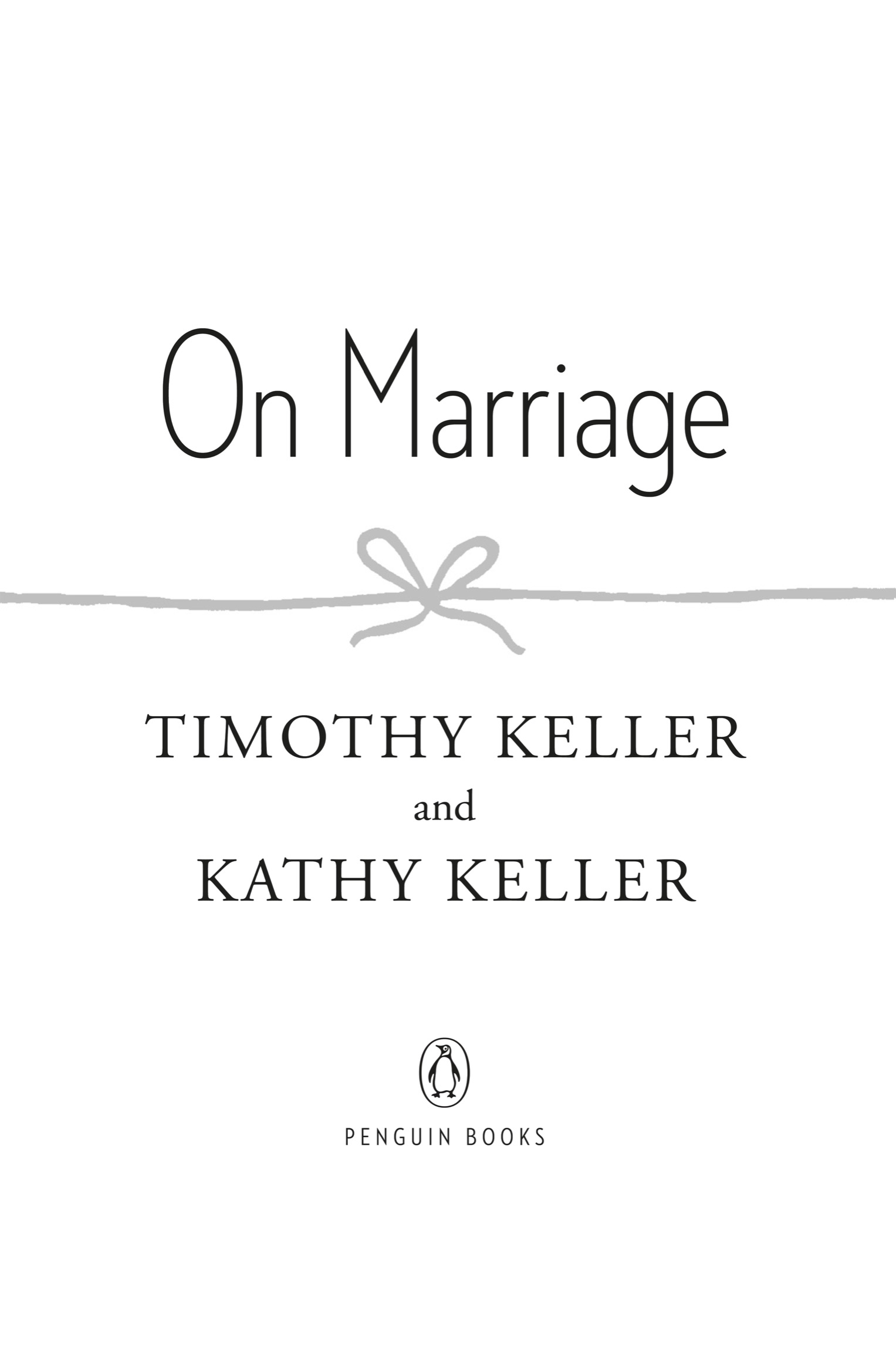PENGUIN BOOKS
ON MARRIAGE
Timothy Keller started Redeemer Presbyterian Church in New York City with his wife, Kathy, and their three sons. Redeemer grew to nearly 5,500 regular Sunday attendees and helped to start more than three hundred new churches around the world. In 2017 Keller moved from his role as senior minister at Redeemer to the staff of Redeemer City to City, an organization that helps national church leaders around the world reach and minister in global cities. He is the author of The Prodigal Prophet, Gods Wisdom for Navigating Life, as well as The Meaning of Marriage, The Prodigal God, and The Reason for God, among others.
Kathy Keller received her MA in theological studies at Gordon-Conwell Theological Seminary. Kathy and Tim then moved to Virginia, where Tim started at his first church, West Hopewell Presbyterian Church. After nine years, Kathy and her family moved to New York City to start the Redeemer Presbyterian Church. Kathy cowrote The Meaning of Marriage, The Songs of Jesus, Gods Wisdom for Navigating Life, and The Meaning of Marriage: A Couples Devotional with Tim. On Marriage is their fifth collaboration.
ALSO BY THE AUTHORS
The Meaning of Marriage
The Songs of Jesus
Gods Wisdom for Navigating Life
The Meaning of Marriage: A Couples Devotional
ALSO BY TIMOTHY KELLER
The Reason for God
The Prodigal God
Counterfeit Gods
Generous Justice
Jesus the King
Center Church
Every Good Endeavor
Walking with God through Pain and Suffering
Encounters with Jesus
Prayer
Preaching
Making Sense of God
Hidden Christmas
The Prodigal Prophet
On Birth
On Death
PENGUIN BOOKS
An imprint of Penguin Random House LLC
penguinrandomhouse.com
Copyright 2020 by Timothy Keller and Kathy Keller
Penguin supports copyright. Copyright fuels creativity, encourages diverse voices, promotes free speech, and creates a vibrant culture. Thank you for buying an authorized edition of this book and for complying with copyright laws by not reproducing, scanning, or distributing any part of it in any form without permission. You are supporting writers and allowing Penguin to continue to publish books for every reader.
All Bible references are from the New International Version (NIV), unless otherwise noted.
ISBN 9780143135364 (paperback)
ISBN 9780525507024 (ebook)
Cover design: gray318
pid_prh_5.5.0_c0_r0
In memory of Dr. R. C. Sproul, who performed our wedding and got both our theology and our marriage going in the right direction
Contents
Introduction to the How to Find God Series
Life is a journey, and finding and knowing God is fundamental to that journey. When a new child is born, when we approach marriage, and when we find ourselves facing deatheither in old age or much earlierit tends to concentrate the mind. We shake ourselves temporarily free from absorption in the whirl of daily life and ask the big questions of the ages:
Am I living for things that matter?
Will I have what it takes to face this new stage of life?
Do I have a real relationship with God?
The most fundamental transition any human being can make is what the Bible refers to as the new birth (John 3:18), or becoming a new creation (2 Corinthians 5:17). This can happen at any time in a life, of course, but often the circumstances that lead us to vital faith in Christ occur during these tectonic shifts in life stages. Over forty-five years of ministry, my wife, Kathy, and I have seen that people are particularly open to exploring a relationship with God at times of major life transition.
In this series of short books we want to help readers facing major life changes to think about what constitutes the truly changed life. Our purpose is to give readers the Christian foundations for lifes most important and profound moments. We start with birth and baptism, move into marriage, and conclude with death. Our hope is that these slim books will provide guidance, comfort, wisdom, and, above all, will help point the way to finding and knowing God all throughout your life.
Beginning a Marriage
Why bother to get married at all?
In the words of the traditional Christian wedding service, God has established and sanctified marriage for the welfare and happiness of humankind. While true, that cannot be the end of the discussion for modern people.
This is a more pressing question now than it has ever been in previous times. In the past it was a given that to become an adult member of society you married and had children, and the vast majority of people did so. But younger adults in Western countries today postpone marriage at unprecedented rates. Nearly a third of all millennials in the United States may stay unmarried through age forty, and 25 percent may not marry at all, the highest proportion of any generation in modern history. Why? There are two reasons that so many marriages never begin: economic stress and the rise of individualism in culture.
Fears About Marriage
The economic factor is seen in the widespread belief of single adults that they must be financially secure in a good career before they marry and that, of course, their prospective mate should be as well. The background assumption is that married life is a drain on resources, especially with the arrival of children. Before marrying, it is therefore believed, you should have a guaranteed income stream, adequate savings, and perhaps even an investment portfolio.
However, this view flies in the face of both statistics and tradition. Traditionally, you got married not because you were economically secure and stable, but in order to become so. Marriage brings with it unique economic benefits. Studies show that married couples save significantly more than singles. Spouses can encourage one another to greater levels of self-discipline than can friends. Spouses also provide each other with more support through the trials of life, so that they experience greater physical and mental health than singles.
The other factor in the decline of marriage to which experts point is expressive individualism. This is a term popularized by sociologists to describe a growing cultural trend. In traditional cultures our personal identity was worked out in our relationships. Who I am was defined by my place in a family and community, and perhaps by my place in the universe with God. I became a person of worth as I fulfilled my responsibilities in these relationships. In modern times, however, we have turned inward. Who I am must not be determined by what anyone else says or thinks about me. I become a person of worth as I discover my own deepest desires and feelings and express them. Once I determine who I am, then I can enter into relationships, but only with those who accept me on my own terms.
This modern approach to identity is instilled in us by our culture in countless ways. In the 2016 film Moana, the crown princess of a Polynesian island has been told by her father that she is the islands future leader and will have to submit to many traditional responsibilities. But instead, Moana has a desire to set out to sea to find adventure. Her grandmother sings her a song that tells her that her true self resides not in her duties and social responsibilities, but in the expression of her inmost desires. She tells Moana that if a voice inside her heart tells her to follow her desires, that voice inside is


